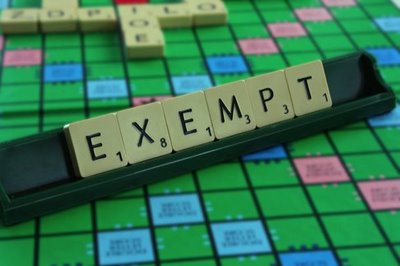 NACBA (National Association of Consumer Bankruptcy Attorneys) responded this weekend to the government’s latest approach to the foreclosure crisis with what I call the Principal Paydown Plan.
NACBA (National Association of Consumer Bankruptcy Attorneys) responded this weekend to the government’s latest approach to the foreclosure crisis with what I call the Principal Paydown Plan.
Rather than turn us into a nation of renters under the recent suggestion that Freddie and Fannie rent their foreclosed properties or sell them as rentals, NACBA suggests again that a Chapter 13 bankruptcy can be modified to help families avoid foreclosure on massively underwater property. Without more focus on prevention, our housing market is certainly facing additional downturns.
The Principal Paydown Plan would require the reduction of interest on a primary mortgage to 0% during a Chapter 13 Plan thereby relegating the entire payment to principal (plus escrow). At the end of the bankruptcy, the debtor would have paid down their mortgage in many cases to the approximate fair market value of the property helping to slow the foreclosure numbers for those homeowners who would otherwise strategically default believing that their home value will take 10 or more years to recover.
 Reboot Your Life: Tampa Student Loan and Bankruptcy Attorney Blog
Reboot Your Life: Tampa Student Loan and Bankruptcy Attorney Blog


 Bankruptcy clients who are new to Florida come to our office complaining about what I call the Exemptions Calculus Problem. Learning calculus seems simpler. Below are some useful sites and a brief explanation as to how exemptions work.
Bankruptcy clients who are new to Florida come to our office complaining about what I call the Exemptions Calculus Problem. Learning calculus seems simpler. Below are some useful sites and a brief explanation as to how exemptions work. Elusive principal reductions are hard to come by, but we recently scored a very big win on behalf of one of our prior
Elusive principal reductions are hard to come by, but we recently scored a very big win on behalf of one of our prior  In Florida, our Tampa Bay area homeowners are faced with a dilemma whether to claim the homestead exemption for their underwater homes. Historically, Florida homeowners have been allowed to keep or exempt $1,000 of personal property in a Chapter 7 bankruptcy. This isn’t much, and many homeowners had to pay the bankruptcy trustee to keep anything in excess of $1,000 per debtor. However, in the past few years, the Florida legislature passed
In Florida, our Tampa Bay area homeowners are faced with a dilemma whether to claim the homestead exemption for their underwater homes. Historically, Florida homeowners have been allowed to keep or exempt $1,000 of personal property in a Chapter 7 bankruptcy. This isn’t much, and many homeowners had to pay the bankruptcy trustee to keep anything in excess of $1,000 per debtor. However, in the past few years, the Florida legislature passed  Currently, the Bankruptcy Code does not allow a bankruptcy court to modify a bankruptcy debtor’s first mortgage on his or her primary home. It does not prevent a mortgage company from modifying a loan if it voluntary agrees, but nothing allows the bankruptcy judge the power to force a principal reduction for an underwater home.
Currently, the Bankruptcy Code does not allow a bankruptcy court to modify a bankruptcy debtor’s first mortgage on his or her primary home. It does not prevent a mortgage company from modifying a loan if it voluntary agrees, but nothing allows the bankruptcy judge the power to force a principal reduction for an underwater home. Finally, a win in the Florida Supreme Court for bankruptcy debtors. In February, the
Finally, a win in the Florida Supreme Court for bankruptcy debtors. In February, the  The Middle District of Florida, Tampa Division, upheld Wells Fargo’s practice of freezing bank accounts of Chapter 7 bankruptcy debtors.
The Middle District of Florida, Tampa Division, upheld Wells Fargo’s practice of freezing bank accounts of Chapter 7 bankruptcy debtors.